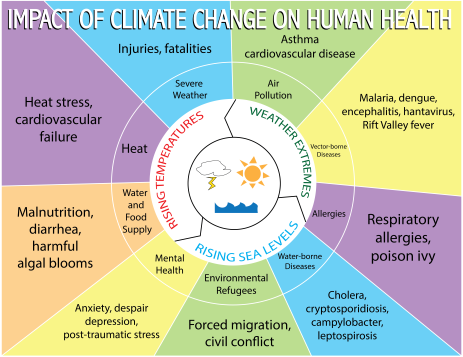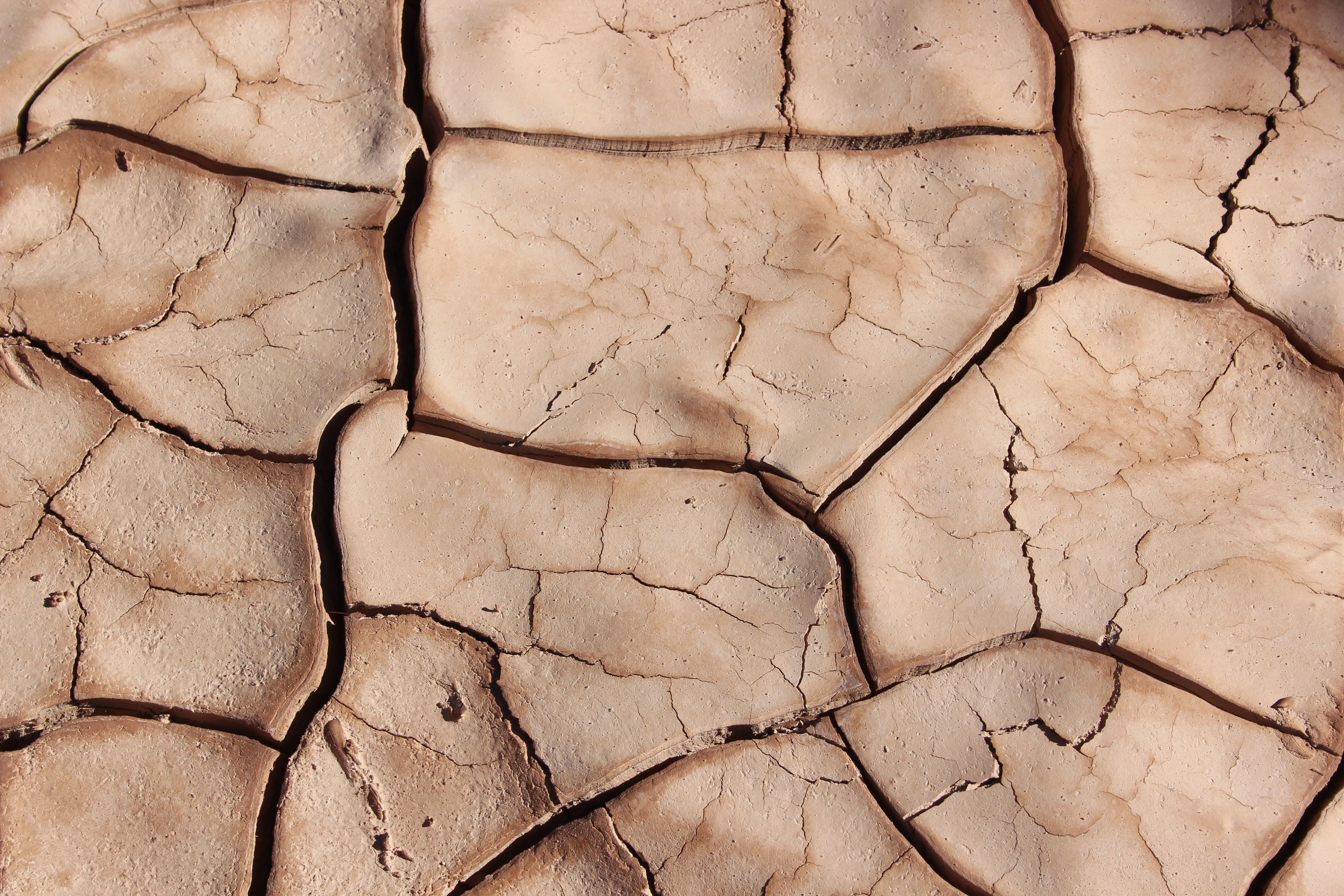There are so many ways our climate has impacts the world every single day. While extreme temperatures and weather patterns have a large effect on our present, they will have an even bigger effect on the way we will have to live in the future.
More specifically, our world’s increase in global warming will also prompt a high increase on disease.
According to WHO, between the years of 2030 and 2050, climate change will cause about 250,000 deaths per year. While this may seem far fetched, it is realistic. Over the next few decades, disease will spread easily without proper precautions, causing a major epidemic within the world.
Rising temperatures:
According to Smithsonianmag.com, the number of hot days is expected to rise from its current average of four to six days per year to 33 to 45 by 2070.
For instance, regarding air pollution, there is the Clean Air Act in place to protect the amount of emissions going into the air. This does not mean everyone abides by this, though.
Air pollution can cause more asthma. This is because people will not be able to breathe in clean air or any air at all containing so much carbon.
Also, with severe weather people’s bodies will not be able to handle it. More droughts will increase the amount of heat strokes or heat stress. This is caused by the hot weather and even dehydration in this time. There are simple signs such as hot and dry skin, red face and high body temperature that are important to know.
When having allergies, weather is usually the cause, but they will only get worse, due to weather. According to National Geographic, “when exposed to warmer temperatures and higher levels of CO2, plants grow more vigorously and produce more pollen than they otherwise would.” The increasing heat and spread of germs will cause immune systems to want to attack anything coming its way. It may seem hard to kills these diseases, but it can be done.
“Adopting healthy lifestyles including exercise, healthy diet, stress management, and age appropriate screenings for health risks all promote healthy living and early detection of disease,” Cabrini nurse Susan Fitzgerald said.
Weather extremes
The damage of extreme weather can take a toll on the whole world. There are diseases such as malaria, dengue and hantavirus that are vector borne and dangerous. These diseases are carried by humans, animals or plants.
While these diseases may take a while to reach the U.S., they are still affecting people every day in poorer countries.
Global travel and climate change can cause these diseases to gather to countries they were previously unknown. According to the US Global Change Research Organization, other vulnerable groups of people, include those with low income, some communities of color, immigrant groups, Indigenous peoples, children and pregnant women, older adults, vulnerable occupational groups, persons with disabilities and persons with preexisting or chronic medical conditions.
Change of climate in poorer countries can cause less growth because of the lack of water. When the people are sharing or re-using the same water to eat and clean, diseases are prone to happen. These countries also have less exposure to health care which means they spread diseases unknowingly. People who travel come to the U.S. and spread the disease.
Cholera is one of the worst water-borne diseases. Cholera occurs from drinking contaminated water. Contaminated water is happening more often than most may think with the pollution. Water coming from all parts of the world because of extreme weather conditions, traveling to another, carrying many unknown particles.
Rising sea levels:
Sea levels are also rising and impacting people in ways that may not seem relatable to weather. The effects of this causes more natural disasters to happen, which forces people out of their homes. This happens more often and increases chances of anxiety or depression.
“As a Hurricane Katrina survivor, I have lived through the devastation of what natural disasters are capable of. With the rising impacts of global warming, research suggests that there will be an increase in intensity of hurricanes along coastal regions. After Hurricane Katrina had stripped me from all that I had once owned, emotions of anxiety and fear rush over me when I receive news of the next impending storm,” biology major, Ellie Temonia said.
Health care is very relatable and the whole world is being affected. More people’s health is at risk, and the different aspects of health will kill people entirely.

“Reduce, reuse, recycle if we do not do these things the climate will only get worse, and we will get sicker”, biology major Juliana Khanuja said.



